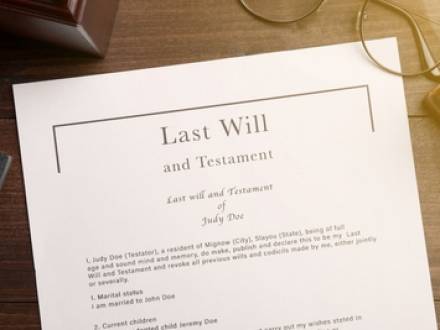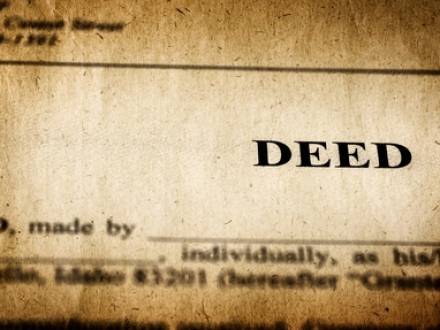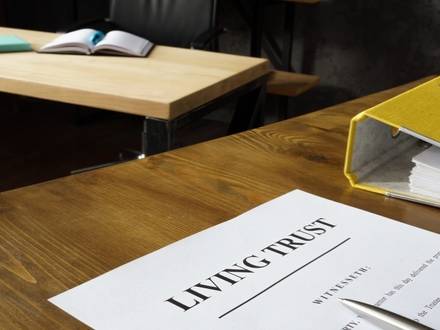 28 N. 1st St., Suite 101, Geneva, IL 60134
28 N. 1st St., Suite 101, Geneva, IL 60134
Recent Blog Posts
What Happens if You Don't Fund a Trust?
 According to the American Association of Retired Persons, nearly 60 percent of Americans do not have a will or any estate planning documents. But creating a trust is only half the work. Many people spend time and money setting up a trust, but never complete the critical second step of funding it. An unfunded trust cannot do its job.
According to the American Association of Retired Persons, nearly 60 percent of Americans do not have a will or any estate planning documents. But creating a trust is only half the work. Many people spend time and money setting up a trust, but never complete the critical second step of funding it. An unfunded trust cannot do its job.
Funding a trust means transferring ownership of your assets into the trust's name. Without this transfer, your trust remains an empty legal shell. If you have questions about properly funding your trust in 2026, our DuPage County estate planning lawyer can guide you through the process and make sure your estate plan works as intended.
Using Bankruptcy to Avoid Illinois Foreclosure: Pros & Cons
 Bankruptcy – especially Chapter 13 – can stop the process immediately. However, filing for bankruptcy without understanding the process and the risks may only delay the sale, not prevent it. The bankruptcy automatic stay is a powerful protection to immediately halt foreclosure and creditor calls, but it is not the right solution for everyone.
Bankruptcy – especially Chapter 13 – can stop the process immediately. However, filing for bankruptcy without understanding the process and the risks may only delay the sale, not prevent it. The bankruptcy automatic stay is a powerful protection to immediately halt foreclosure and creditor calls, but it is not the right solution for everyone.
Your income, equity in your home, and the type of bankruptcy you choose to file can either give you a path to save your home or only delay the process. Illinois homeowners must understand the strict rules, long-term consequences, and what bankruptcy can and cannot do before committing to a course of action. A Kane County bankruptcy lawyer can evaluate your situation and help you make the best decision for your future.
Why is Bankruptcy a Common Foreclosure Strategy in Illinois?
Illinois is a judicial foreclosure state, which means lenders must file a lawsuit and get a court order to foreclose on a defaulted mortgage. This means that the process goes through the court system, giving homeowners more time to respond to the lawsuit and defend their case in court.
What Happens When a Will Is Improperly Executed in Illinois?
 Estate planning documents, including wills and trusts, may be among the most important documents a person will ever sign. However, in Illinois, sometimes even the slightest mistake in how the document is executed can result in the will being invalidated.
Estate planning documents, including wills and trusts, may be among the most important documents a person will ever sign. However, in Illinois, sometimes even the slightest mistake in how the document is executed can result in the will being invalidated.
An improperly executed will can lead to delays in probate, court challenges, and bitter family disputes. Understanding what Illinois law requires and having a highly experienced DuPage County, IL estate planning attorney guiding you through the process can make a significant difference in whether your will is executed correctly.
What Are the Basic Illinois Will Execution Requirements?
Under the Illinois Probate Act (755 ILCS 5/4-3), the requirements for a will in the state include:
- The will must be in writing (oral wills are not permitted).
How 2024 Illinois Law Changes TOD Deeds for Property Owners
 In 2024, the state of Illinois quietly expanded one of its most flexible estate planning tools – the Transfer on Death Instrument (TODI). Before this change, transfer-on-death instruments were limited to residential real estate, but now they extend to some commercial and mixed-use properties.
In 2024, the state of Illinois quietly expanded one of its most flexible estate planning tools – the Transfer on Death Instrument (TODI). Before this change, transfer-on-death instruments were limited to residential real estate, but now they extend to some commercial and mixed-use properties.
Business owners and investors can now transfer commercial real estate directly to heirs without probate, thanks to amendments to 755 ILCS 27/5. The goal is to modernize property succession and reduce the backlog in probate courts. As with most things, however, with broader use comes additional complications.
Not every property or owner qualifies for a TODI. If mistakes are made in the beneficiary designation or execution of the TODI, the transfer can be invalidated. If you are wondering whether your commercial real estate can be transferred via a TODI upon your death, the best step you can take is to consult with an experienced Geneva, IL estate planning lawyer.
Can Illinois Bankruptcy Take Your House If It’s Paid Off?
 Perhaps you have worked for decades to pay off your mortgage under the belief that once your home is paid for, it is safe. Unfortunately, if financial troubles force you into bankruptcy, your home, even with homestead bankruptcy exemptions, may not be as protected as you might think. The Illinois bankruptcy homestead only shields a limited amount of home equity.
Perhaps you have worked for decades to pay off your mortgage under the belief that once your home is paid for, it is safe. Unfortunately, if financial troubles force you into bankruptcy, your home, even with homestead bankruptcy exemptions, may not be as protected as you might think. The Illinois bankruptcy homestead only shields a limited amount of home equity.
Any value beyond that can be at risk of liquidation if you are filing Chapter 7. It is crucial to understand how bankruptcy homestead exemptions work in Illinois bankruptcy cases. It is just as important to have a strong, knowledgeable Geneva, IL bankruptcy attorney who can guide you through the process and work diligently to protect your home.
Understanding the Illinois Homestead Exemption
The bankruptcy homestead exemption protects only a portion of your home equity. The amount you can protect depends on your filing status; Illinois law requires residents to use the state’s homestead and other exemptions rather than federal exemptions. If you are a single filer, the Illinois Chapter 7 bankruptcy homestead exemption only allows you to protect up to $15,000 of your home’s equity.
What to Expect from the Closing Process When Buying a Home
 Buying a home is an exciting milestone, but the closing process can feel unfamiliar, especially if you have never gone through it before. Closing is the final stage of your purchase, where ownership of the property officially transfers from the seller to you. Throughout DuPage County, understanding what happens at closing, what you will need to sign, and how much you might have to pay can help you avoid surprises.
Buying a home is an exciting milestone, but the closing process can feel unfamiliar, especially if you have never gone through it before. Closing is the final stage of your purchase, where ownership of the property officially transfers from the seller to you. Throughout DuPage County, understanding what happens at closing, what you will need to sign, and how much you might have to pay can help you avoid surprises.
As of August 2025, Illinois real estate law continues to require that the transfer of property ownership be documented in writing, with all necessary signatures and properly recorded deeds. Having a local Geneva real estate attorney for first-time homebuyers can ensure that every detail is handled correctly.
What Is the Closing Process?
In Illinois, "closing" refers to the meeting or process where the buyer and seller finalize the sale of a property. It typically takes place at a title company’s office, a law firm, or sometimes remotely via electronic signing. All the necessary documents are reviewed and signed, and funds are exchanged. Once everything is completed, you receive the keys to your new home.
Understanding Trusts: Are They Right for Your Family?
 Planning for the future is not always easy, especially when it involves decisions about how to protect your family and everything you have worked hard to build. For many, one of the biggest questions is whether setting up a trust makes sense for their situation.
Planning for the future is not always easy, especially when it involves decisions about how to protect your family and everything you have worked hard to build. For many, one of the biggest questions is whether setting up a trust makes sense for their situation.
While a trust can help avoid probate, maintain privacy, and provide clear instructions for managing your assets, it is not the right solution for everyone. Working with a DuPage County, IL estate planning attorney can give you the clarity you need to decide if a trust aligns with your family’s needs and long-term goals.
What Is a Trust and How Does It Work?
A trust is a legal tool that allows one person, called the trustee, to hold and manage property for the benefit of others, known as beneficiaries. The person who creates the trust is referred to as the grantor. Unlike a will, a trust goes into effect while you are still living and may allow your family to avoid the probate process after your death.
Can You Be Denied the Right to File for Bankruptcy?
 Bankruptcy is often seen as a lifeline for people facing crushing debt. However, that lifeline can quickly disappear if the court denies your case. Filing for bankruptcy is not automatic relief; it is a legal process with strict qualifications and procedures. Many people are surprised to learn that their bankruptcy can be denied due to errors, ineligibility, or misconduct. With so much at stake, having a skilled Kane County bankruptcy lawyer on your side can make all the difference in securing the debt relief you need.
Bankruptcy is often seen as a lifeline for people facing crushing debt. However, that lifeline can quickly disappear if the court denies your case. Filing for bankruptcy is not automatic relief; it is a legal process with strict qualifications and procedures. Many people are surprised to learn that their bankruptcy can be denied due to errors, ineligibility, or misconduct. With so much at stake, having a skilled Kane County bankruptcy lawyer on your side can make all the difference in securing the debt relief you need.
What Legal Standards Must You Meet to File?
Bankruptcy eligibility depends on the type of bankruptcy you are pursuing. For Chapter 7 bankruptcy, your income must be low enough to pass the "means test," which compares your household income to the median in your state. For Chapter 13, you must show that you have regular income and that your secured and unsecured debts fall within the legal limits.
How Often Should I Update My Estate Plan?
 An estate plan is more than a set of documents—it is your voice, your wishes, and your legacy. Since life does not stand still, neither should your estate plan. Marriages, births, financial shifts, and other life changes can all impact how your plan functions when it matters most. Regular updates are vital to making sure your plan works for you, not against you. A DuPage County, IL estate planning attorney can help you review and update your plan so that it remains clear, compliant, and effective.
An estate plan is more than a set of documents—it is your voice, your wishes, and your legacy. Since life does not stand still, neither should your estate plan. Marriages, births, financial shifts, and other life changes can all impact how your plan functions when it matters most. Regular updates are vital to making sure your plan works for you, not against you. A DuPage County, IL estate planning attorney can help you review and update your plan so that it remains clear, compliant, and effective.
Why Is It Important to Regularly Review Your Estate Plan?
Estate plans should adapt as your personal, financial, and legal situations change. If you do not update your plan, outdated information could create confusion, delay the distribution of your assets, or even invalidate parts of the plan. In Illinois, estate administration is governed by the Probate Act, which sets the rules for distributing assets if no valid or clear plan exists.
How Can I Pass Down My Assets to My Family?
 During the process of estate planning, your concerns may center around making sure your property is distributed exactly how you want it. There are a variety of ways to pass down your wealth and assets, but each method comes with its own unique benefits and drawbacks. A knowledgeable Illinois estate planning lawyer can advise you of your options and help you pursue the best course of action to suit your needs and interests.
During the process of estate planning, your concerns may center around making sure your property is distributed exactly how you want it. There are a variety of ways to pass down your wealth and assets, but each method comes with its own unique benefits and drawbacks. A knowledgeable Illinois estate planning lawyer can advise you of your options and help you pursue the best course of action to suit your needs and interests.
At DLAW, PC, we have more than 25 years of experience helping clients with their legal issues. Attorney Deanna Aguinaga Walker works with every client personally, providing individualized counsel and representation to resolve any legal issues.
How Do Wills Work?
Writing a will is one of the most straightforward ways of passing down your assets to your beneficiaries, whether you have a simple or complex estate. In your will, you can decide who will receive your property upon your death. Property distributed in your will may include assets like your home, vehicles, bank accounts, and other belongings.


 331-222-7978
331-222-7978

